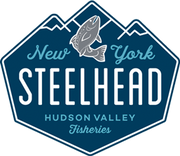Pioneering Sustainable Sushi, at Rosella

At his East Village restaurant, the chef Jeff Miller serves exquisite dishes that might involve striped bass from Bushwick and soy sauce made by a guy named Bob in Mystic, Connecticut.

At most sushi restaurants, when you’re enjoying an omakase meal for which you’re soon going to pay a large sum of money, you don’t expect to hear phrases like “striped bass from a hydroponic farm in Bushwick,” “sake brewed in Industry City,” or “soy sauce made by a guy named Bob in Mystic, Connecticut.” And yet that’s exactly what you may hear at Jeff Miller’s East Village spot, Rosella—the only sustainable sushi restaurant in New York City.
Miller, who grew up in California, is a pioneer: from 2017 to 2019, he was the chef at the first sustainable sushi restaurant in New York City, Mayanoki, now closed. At Rosella, he continues his practice of purposefully avoiding overfished species, a factor that constantly shifts in relation to fishery management, following the recommendations of the Monterey Bay Aquarium Seafood Watch and the noaa FishWatch programs. He also strives to source his ingredients as locally as possible, a philosophy that extends to the interior of his restaurant. The cozy space—with a six-seat omakase counter in the back and several bar seats in the front—features handsome wood countertops carved from a London plane tree that fell in Red Hook, Brooklyn, during Hurricane Sandy, in 2012.
Whether you invest in the fifteen-course omakase or just stop in for a chirashi bowl—a medley, atop rice, of exquisite cuts of sashimi, balancing stronger and lighter flavors, leaner and fattier fish, almost all of it procured in the U.S.—the welcome from Rosella’s tight team of chefs and servers is warm. On a recent night, a succulent strip of Florida Spanish mackerel, swiped with yuzu kosho, was followed by a silky piece of applewood-smoked steelhead trout, from Hudson, New York. Artistic license abounds. The menu’s Rolls That Defy Categorization section listed just one, an avocado roll mounded with Maine lobster, extracted whole from the claw and lightly dressed with citrus mayo, reminiscent of . . . a lobster roll. A slurpable, spicy Singapore-style laksa—poised to give ramen some healthy competition—combined chicken broth, homemade shrimp paste, coconut milk, and lime for a tangy, velvety soup swimming with thin rice noodles, roasted maitake mushrooms, and seared Gulf shrimp.

As in the trout, smoke found its way to a sea-urchin roll, and to the Crudo Verde, featuring walnut-wood-smoked Baja California amberjack wrapped around pickled tomatillos and nestled with mandarin supremes. Miller told me, “I love the flavor of smoke, so I have to limit myself with two or three things a night.”
In his quest for sustainability, Miller has discovered a constellation of nearby artisans making traditional Japanese ingredients. He said that he mixes his sushi rice with “rice vinegar made in Pennsylvania by a little husband-and-wife operation called Keepwell Vinegar. They also make the misos that we use.” That Mystic soy sauce is from Moromi, a company started by Bob Florence, who left the corporate world to learn fermenting techniques at the esteemed Chiba Shoyu, in Japan. And Rosella highlights Brooklyn-made sake: Kato Sake Works, in Bushwick, was started by a Japanese expat who produces a lovely, bright, smooth junmai. “Most of these things didn’t even exist five years ago,” Miller said.
Rosella aptly bills itself as an American sushi restaurant, but its name has roots in Australia—specifically, outside of Canberra, where Miller lived as a study-abroad student in high school, in the home of an eccentric man named Ron, who taught him how to cook intricate dishes. The area was rife with wild rosella parrots; Miller associates them with his burgeoning food awakening.
For dessert, you can have that American favorite, carrot cake, here on the verge of savory, fortified with sunchoke miso and garnished with candied orange peel and marigold flowers. The cake is scooped into a bowl, its sides smeared with a generous whoosh of scrumptious white frosting. The star ingredient? The cult favorite Ben’s cream cheese, from Rockland County, just up the road. (Omakase $150; sushi $7-$12; other dishes $6-$35.)










